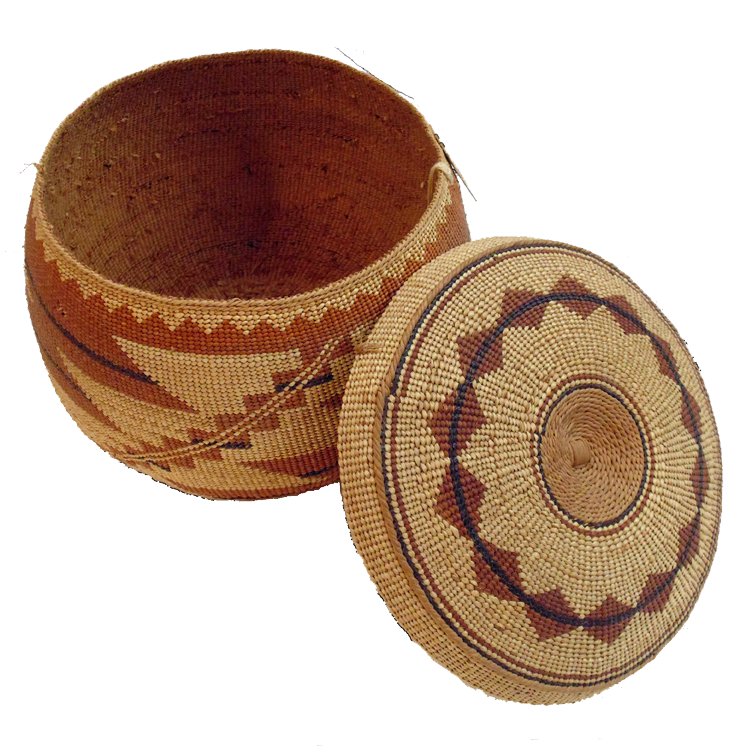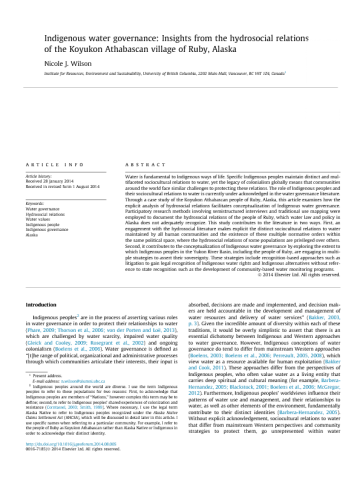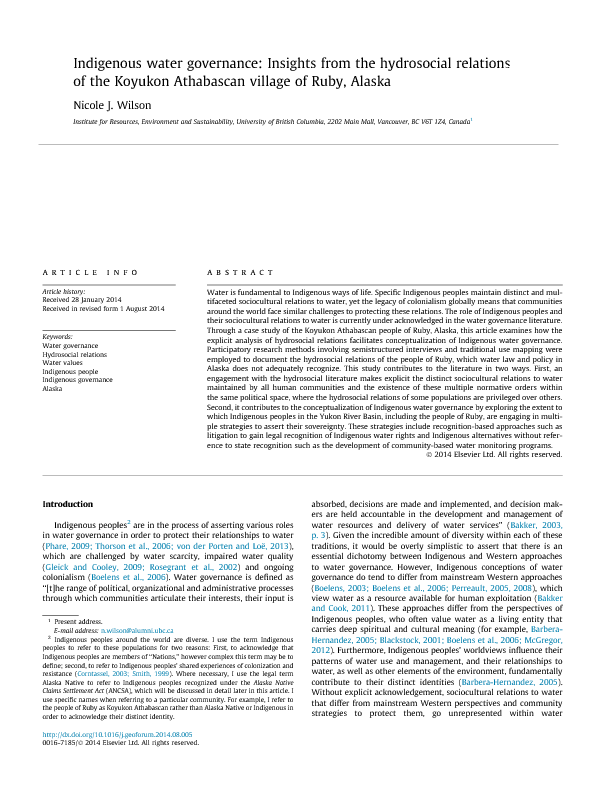Indigenous Water Governance: Insights from the Hydrosocial Relations of the Koyukon Athabascan Village of Ruby, Alaska
Water is fundamental to Indigenous ways of life. Specific Indigenous peoples maintain distinct and multifaceted sociocultural relations to water, yet the legacy of colonialism globally means that communities around the world face similar challenges to protecting these relations. The role of Indigenous peoples and their sociocultural relations to water is currently under acknowledged in the water governance literature. Through a case study of the Koyukon Athabascan people of Ruby, Alaska, this article examines how the explicit analysis of hydrosocial relations facilitates conceptualization of Indigenous water governance. Participatory research methods involving semistructured interviews and traditional use mapping were employed to document the hydrosocial relations of the people of Ruby, which water law and policy in Alaska does not adequately recognize. This study contributes to the literature in two ways. First, an engagement with the hydrosocial literature makes explicit the distinct socio cultural relations to water maintained by all human communities and the existence of these multiple normative orders within the same political space, where the hydrosocial relations of some populations are privileged over others. Second, it contributes to the conceptualization of Indigenous water governance by exploring the extent to which Indigenous peoples in the Yukon River Basin, including the people of Ruby, are engaging in multiple strategies to assert their sovereignty. These strategies include recognition-based approaches such as litigation to gain legal recognition of Indigenous water rights and Indigenous alternatives without refer- ence to state recognition such as the development of community-based water monitoring programs.
Provenance: Contributed to Sipnuuk Food Security Collection by Dan Sarna, PhD candidate at the Department of Environmental Science, Policy, & Management at UC Berkeley, in association with his dissertation research as well as his collaboration on Objective 12 of the AFRI Food Security grant.
Rights: Elsevier Ltd All rights reserved


